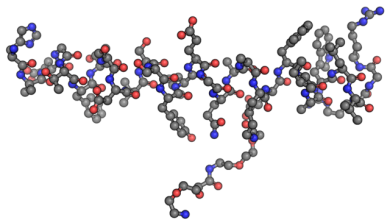What Are The Symptoms, Causes And Treatments Of Asthma?

Asthma can be mild or severe, and that’s why the symptoms also vary from one person to another. Generally, a mild asthma attack is the most common one when the airways open in a few minutes to hours. While severe may last longer, they require medical attention right away. You can get help from walk in family clinic or your nearest urgent care.
Detecting asthma at its mild stage helps prevent severe episodes which might require an emergency room treatment. Currently, there are about 25 million Americans affected by severe diseases. And every year, ER receives nearly 1.6 million visits.
But most people with asthma live well, which doesn’t affect their daily lives because they have learned how to put it under control.
What is Asthma?
When you hear someone has an asthma attack, the bands of muscle around his airways get triggered to tighten. It’s a process known as bronchospasm. During these episodes, the lining of the airways becomes inflamed, and they produce thicker mucus than usual which happens in the cells lining the airways.
Symptoms of Asthma
Some people who have infrequent episodes of asthma attacks may have asthma symptoms all the time or when exercising. So, this varies from one person to another.
- Inflammation
- Abnormal mucus production
- Trouble breathing
- Wheezing
- Coughing
- Shortness of breath
- Continuous coughing
- Rapid breathing
- Retractions (neck and muscle tightening)
- Chest pain
- Difficulty talking
- Anxiety feelings
- Pale, sweaty face
- Lips and fingernails turning blue
While asthma can be a minor nuisance for some people, it can also be a huge problem for other people. It may interfere with their daily activities. That’s why it’s critical to visit urgent family clinic or any clinic near you, as this may lead to an asthma attack.
When To Seek Emergency Treatment
If you’re asthmatic, you need to work with a doctor closely who will help you know what to do when your symptoms worsen. For example, signs of asthma attacks that can be severe and lead to an emergency include:
- When shortness of breath or wheezing becomes rapid
- Using a quick-relief inhaler that doesn’t work to improve the symptoms.
- Experiencing shortness of breath in performing minimal physical activities
If you experience any of the above symptoms, don’t hesitate to see your doctor, as this can be life-threatening. While walk in family clinic deals with mild attacks, they can guide you on the way forward.
What Triggers Asthma Attacks?
One common reason for asthma is the airways’ reaction to things surrounding you, such as air pollution. Let’s look at common asthma triggers:
- Sinusitis infections such as cold and flu.
- Air pollution
- Weather changes such as cold air or humidity
- Allergens such as mold, pollens, and dust mites
- Strong odors or cleaning detergents can be Irritants.
- Gastroesophageal reflux disease (GERD)
- Medicine reactions such as aspirin
- Sulfites are food preservatives used in beer, wine, and pickles.
- It can happen when you’re experiencing emotions such as stress, sadness, anxiety, and laughter.
Asthma Treatment Options
When you address mild asthma early with a medical caregiver, it’s less likely to advance to severe asthma. For example, a doctor from urgent family clinic can offer you an action plan to help control these symptoms and live with no asthma interference in your daily activities.
Inhaled corticosteroids-these are asthma medications that ease the swelling inside your airways. But a person has to use an inhaler to deliver this medicine into the lungs. And this helps to keep asthma under control.
Leukotriene modifiers. These medications block leukotrienes. What are these? Things triggering an asthma attack in your body. They are in the form of pills that you have to take once a day.
Other medications you can use through an inhaler include:
- Long-acting beta-agonists
- Combination inhaler.
- Theophylline.
- Short-acting beta-agonists.
- Anticholinergics.
- Oral and intravenous corticosteroids.
Conclusion
Though asthma has no cure, a doctor can show you how to control the symptoms. Visit an walk in family clinic and see a doctor who can help track the signs and symptoms and will journey with you, adjusting your treatment accordingly. Also, avoid the asthma triggers we mentioned above, and you’ll have more minor asthma attacks.






